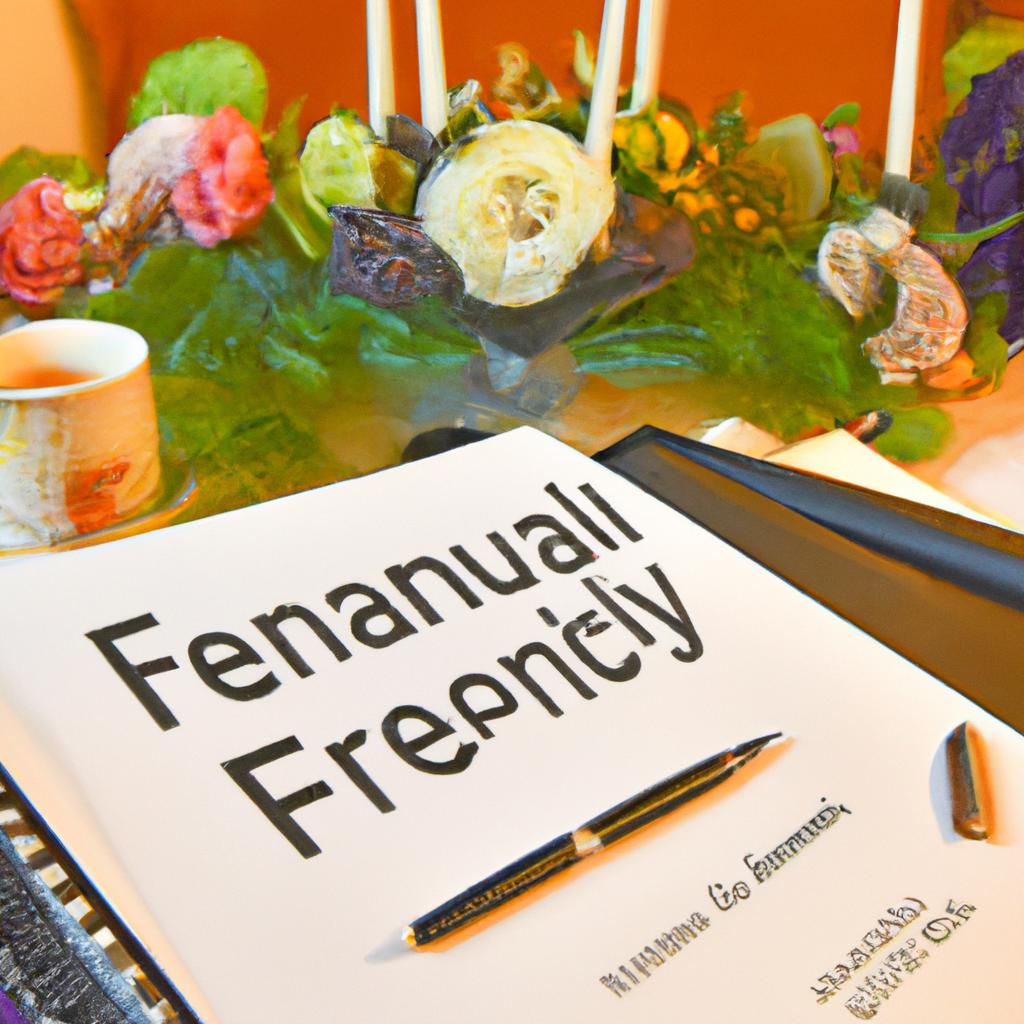Losing a loved one is an emotionally challenging experience, and in the midst of grief, the process of organizing a funeral can feel overwhelming. At Morgan Legal Group, we understand the complexities and legalities involved in planning a funeral. With our expertise in estate planning, probate, elder law, wills, and trusts, we are here to guide you through the necessary steps to ensure a respectful and seamless farewell for your loved one. In this article, we will discuss the essential considerations and legal aspects of organizing a funeral, providing you with the knowledge and support needed during this difficult time.
Planning a Dignified Farewell: Key Considerations for Organising a Funeral
When organizing a funeral, there are several key considerations that need to be taken into account to ensure a dignified farewell for your loved one. One important aspect to consider is the budget for the funeral arrangements. It is essential to plan a funeral that is both meaningful and affordable, so it is important to set a budget and stick to it throughout the planning process.
Another key consideration when organizing a funeral is the location and venue of the funeral service. It is important to choose a location that can accommodate the number of guests expected to attend the service. Additionally, the venue should be able to provide the necessary facilities for the service, such as seating arrangements, audio equipment, and catering services if needed.

Navigating Legal Requirements: Understanding the Necessary Steps
When it comes to organizing a funeral, there are several legal requirements that must be understood and followed to ensure a smooth process. From obtaining the death certificate to making burial arrangements, it is important to navigate these steps carefully. Here are some key points to keep in mind:
Determine the deceased’s wishes: Before making any arrangements, it is important to understand the wishes of the deceased regarding their funeral. This may include preferences for burial or cremation, as well as any specific requests they may have.
- Obtain the death certificate: The first step in organizing a funeral is to obtain the death certificate. This document is required for legal purposes and must be obtained from the local vital statistics office.
- Notify relevant parties: It is important to notify close family members, friends, and any relevant organizations or agencies of the death. This may include notifying the deceased’s employer, insurance companies, and banks.

Creating a Personalized Ceremony: Tailoring the Funeral to Honor a Loved One
At Morgan Legal Group, we understand that each individual is unique and deserves a personalized send-off. When it comes to organizing a funeral, it is important to tailor the ceremony to honor the life and legacy of your loved one. One way to achieve this is by incorporating elements that reflect their personality, interests, and values.
Whether it’s choosing meaningful music, displaying cherished photos, or sharing personal anecdotes, there are countless ways to create a ceremony that truly captures the essence of the person you are saying goodbye to. By working closely with our team of experienced professionals, we can help you plan a funeral that is a beautiful and fitting tribute to your loved one.

Practical Tips for Managing Logistics and Budgeting in Funeral Planning
When it comes to organising a funeral, there are several practical tips that can help you manage logistics and budgeting effectively. One important aspect to consider is establishing a clear budget for the funeral expenses. Create a detailed list of all the costs involved, including the venue, catering, flowers, transportation, and any other services you may require. By setting a budget upfront, you can avoid overspending and ensure that you stay within your financial limits.
Another key tip is to carefully plan the logistics of the funeral, such as scheduling the date and time, arranging transportation for guests, and coordinating with the funeral home for all necessary services. Make sure to communicate your plans clearly with family members and loved ones, so everyone is on the same page. Additionally, consider delegating tasks to trusted individuals to help alleviate some of the stress of planning a funeral.
Q&A
Q: How can I organize a funeral for a loved one?
A: Planning a funeral can be a daunting task, but with proper guidance and support, it can be a healing and meaningful experience.
Q: What are the first steps to take when planning a funeral?
A: The first step is to determine the type of funeral you want, whether it be traditional, green, or alternative. Then, gather necessary information such as the deceased’s wishes, budget, and preferred funeral home.
Q: How can I create a personalized funeral service?
A: Consider incorporating details about the deceased’s life and personality, such as their favorite music, readings, or photos. Also, involve family and friends in the planning process to make it more meaningful.
Q: What are some important decisions to make when organizing a funeral?
A: Some key decisions to make include choosing a burial or cremation, deciding on a casket or urn, selecting a location for the service, and arranging transportation for the deceased.
Q: How can I cope with grief while planning a funeral?
A: It’s important to give yourself time to grieve and seek support from friends, family, or a therapist. Take breaks from planning when needed and remember to take care of yourself during this difficult time.
In Summary
In conclusion, organizing a funeral can be a daunting task, but with careful planning and consideration, you can create a meaningful and respectful ceremony to honor your loved one. Remember to take care of yourself during this difficult time and lean on family and friends for support. Wishing you peace and healing as you navigate this journey of saying goodbye.







